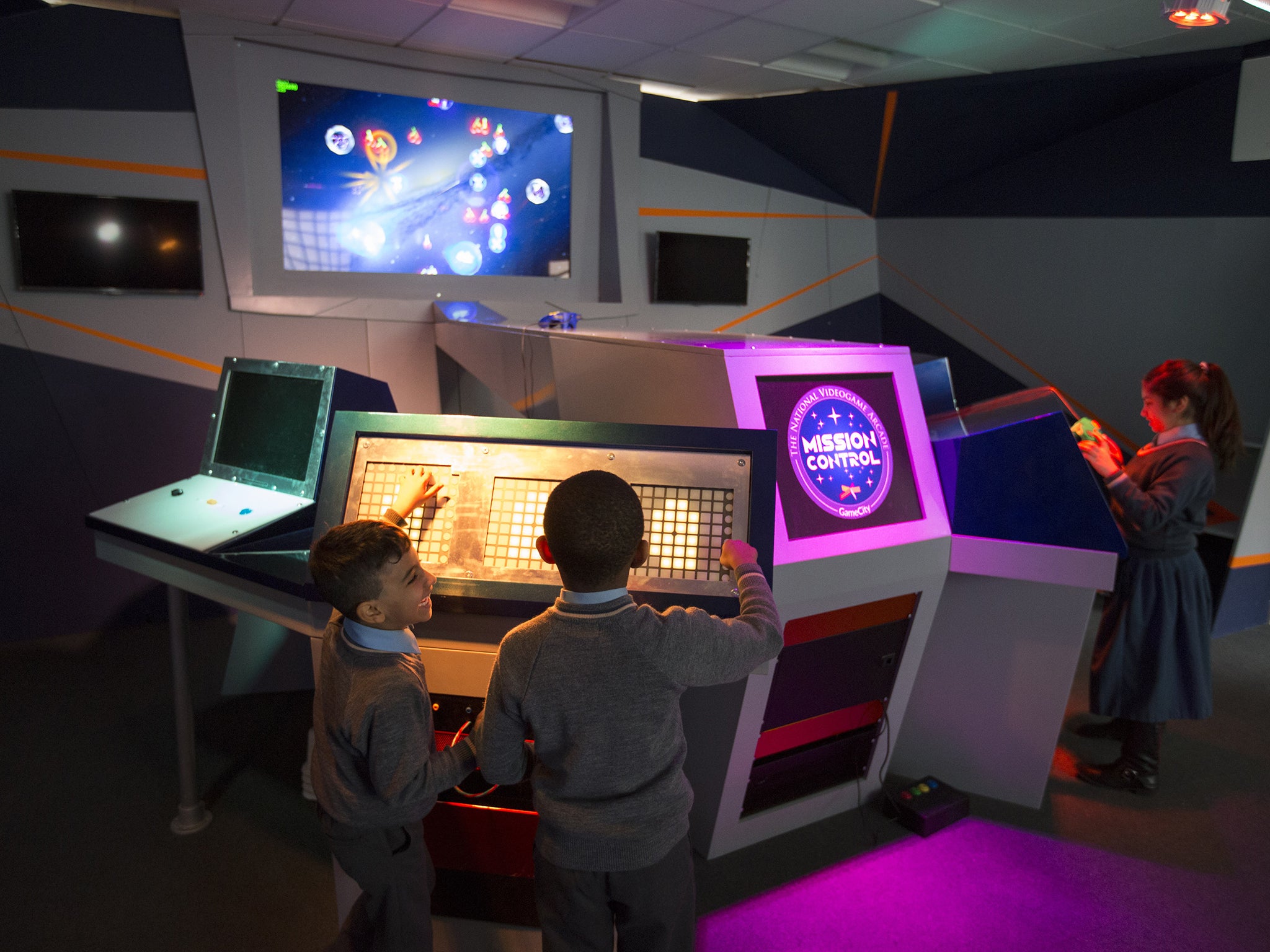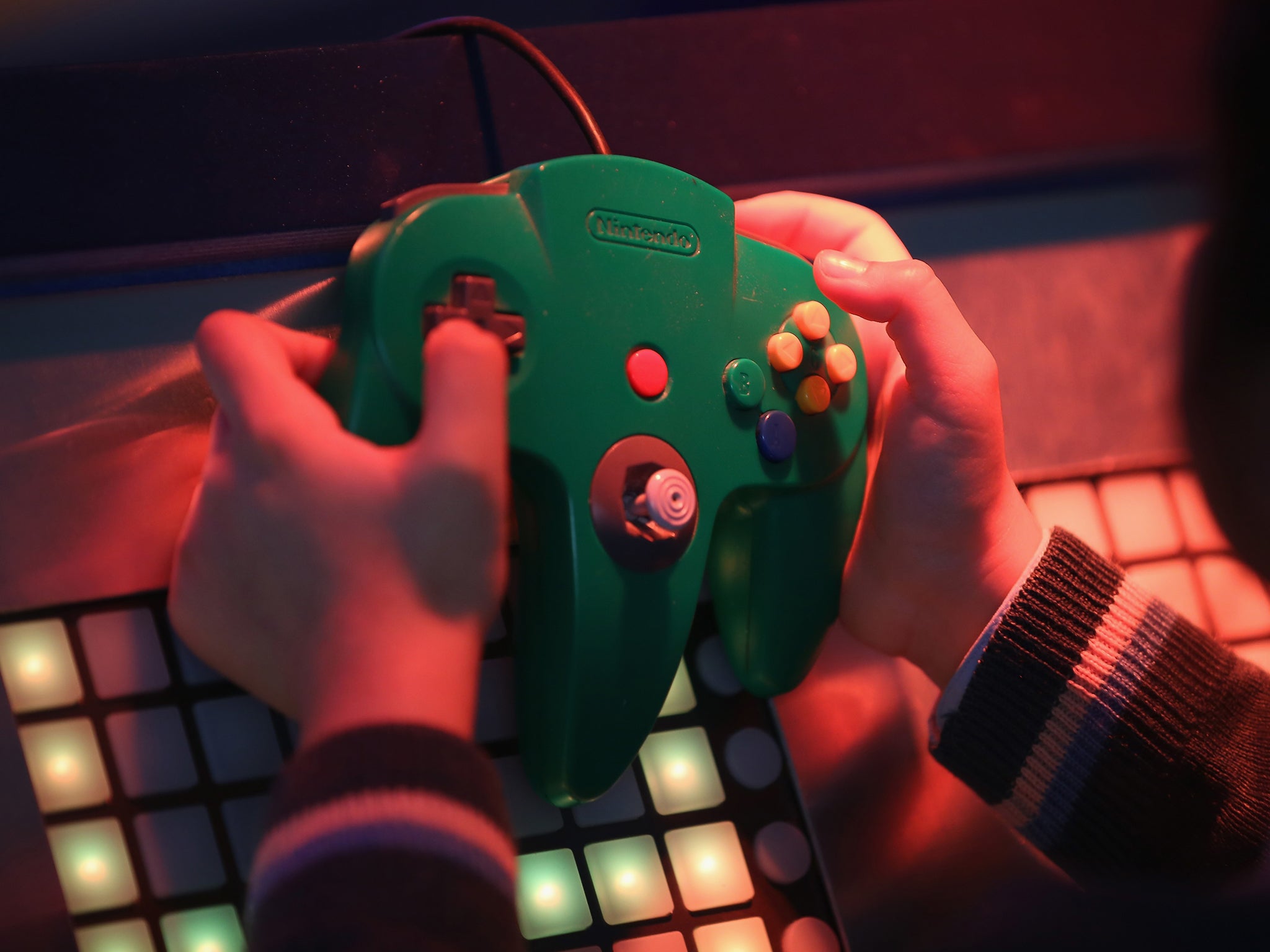National Videogame Arcade: Learn to make Super Mario jump at 'National Gallery of gaming'
"Games are now mainstream culture. They have an impact on society, an economic impact and can be a learning tool"

Your support helps us to tell the story
From reproductive rights to climate change to Big Tech, The Independent is on the ground when the story is developing. Whether it's investigating the financials of Elon Musk's pro-Trump PAC or producing our latest documentary, 'The A Word', which shines a light on the American women fighting for reproductive rights, we know how important it is to parse out the facts from the messaging.
At such a critical moment in US history, we need reporters on the ground. Your donation allows us to keep sending journalists to speak to both sides of the story.
The Independent is trusted by Americans across the entire political spectrum. And unlike many other quality news outlets, we choose not to lock Americans out of our reporting and analysis with paywalls. We believe quality journalism should be available to everyone, paid for by those who can afford it.
Your support makes all the difference.It may be filled with vintage arcade game favourites – and classics of their genre – such as Donkey Kong and Sonic the Hedgehog, but the National Videogame Arcade in Nottingham is not, despite its name, an amusement park. Rather it is the “National Gallery” for video games and marks the point where the likes of Super Mario come in from the cultural cold.
Experts see the NVA, the “first cultural centre” for the form in the UK, as an important step for the industry. The institution which opens tomorrow hopes to provide “cultural confidence” and training to the next generation of developers as well as a chance for people to try out some vintage games.
Ian Livingstone, one of the founding fathers of the UK gaming industry, hailed the Arcade. “Other entertainment media have their cultural centres, the National Theatre and the National Film Theatre and all that, celebrated in permanent locations,” he said.
“I think it’s important to have one for games too because it’s gone beyond entertainment. It is mainstream culture and has an impact on society, economic impact and is a learning tool.”

Three local children, from St Joseph’s Primary School, were the first to tour the space after winning a competition for an exclusive preview yesterday. William, Lemar and Hashim, all under 8 years old, were first met with Mission Control, a specially created space game on a huge screen that allows rudimentary games design. The players can customise characters, graphics and gameplay while playing.
The Arcade is to host four exhibitions a year, starting with Jump! about how developers animate jumping characters including Super Mario.
Visitors are encouraged to interact with most of the exhibits and boost their skills. “Our mission is about inspiring the developers of tomorrow,” co-director Iain Simons said. “That doesn’t necessarily just mean kids. It can be parents. This is about bringing social and civic value.”
The institution offers an exhibition space, including old computers such as the BBC Micro and ZX Spectrum, and joysticks and landmark games, including the critically reviled ET for the Atari – a tie-in with the hit film – copies of which were recently found buried in the New Mexico desert.
The Arcade, a £2.5m project, is housed in the building that once hosted the Midland Group of artists. It is spread over five floors which includes temporary and permanent gallery space, a cinema and space for learning.
Games developers provided as-yet unreleased material for visitors to play and offer feedback while others can experiment with the MaKey MaKey circuit boards that connect into computers and turn anything from fruit to Play-Doh into videogame controllers.
The UK has the largest games development community in Europe with almost 2,000 games companies around the country. The UK market generated £3.9bn in consumer spending last year.
Join our commenting forum
Join thought-provoking conversations, follow other Independent readers and see their replies
Comments